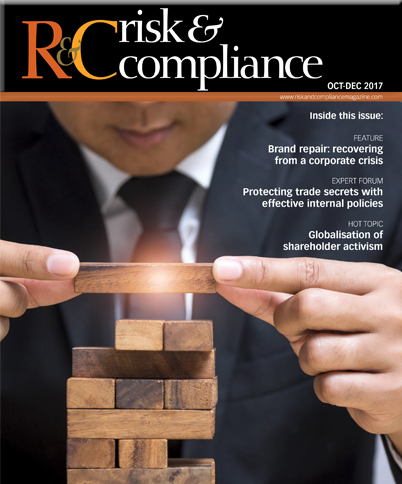EFFECTIVE WHISTLEBLOWER PROGRAMMES AND THEIR IMPACT ON ETHICS, CULTURE AND CONDUCT
R&C: Could you provide an insight into why it is important for companies to include a whistleblower programme as part of their corporate governance efforts? Has it become a key part of promoting good ethics, culture and conduct?
Qureshi: A whistleblower programme is best practice and regulators expect companies to have one. Moreover, it is in the company’s interest to encourage staff, by providing them with a clear mechanism and promise of safe harbour, to raise issues internally first, before going to a regulator or the press. It is an important element of a well-rounded compliance programme. Getting good intelligence from staff who are trained to spot issues and encouraged to be the company’s eyes and ears allows the board to address issues internally at an early stage before they escalate, or turn into external investigations, and also to plug gaps in the corporate compliance programme that may be identified by the issues in question.
Stone: Establishing well-functioning whistleblower procedures is critical to creating a record of issues that are raised and a process for the organisation to involve counsel and compliance teams, as well as internal or outside investigators to establish the facts, and understand the gravity of the issue. External counsel can also help advise on how to respond once the fact-gathering process is complete. Without a proper procedure in place, organisations often do not have internal resources familiar with dealing with a whistleblower issue. Those who do respond are often not trained in reacting to complaints, managing and investigating complaints, particularly where the issue involves allegations of fraud or corruption, and effectively addressing the issues raised.

